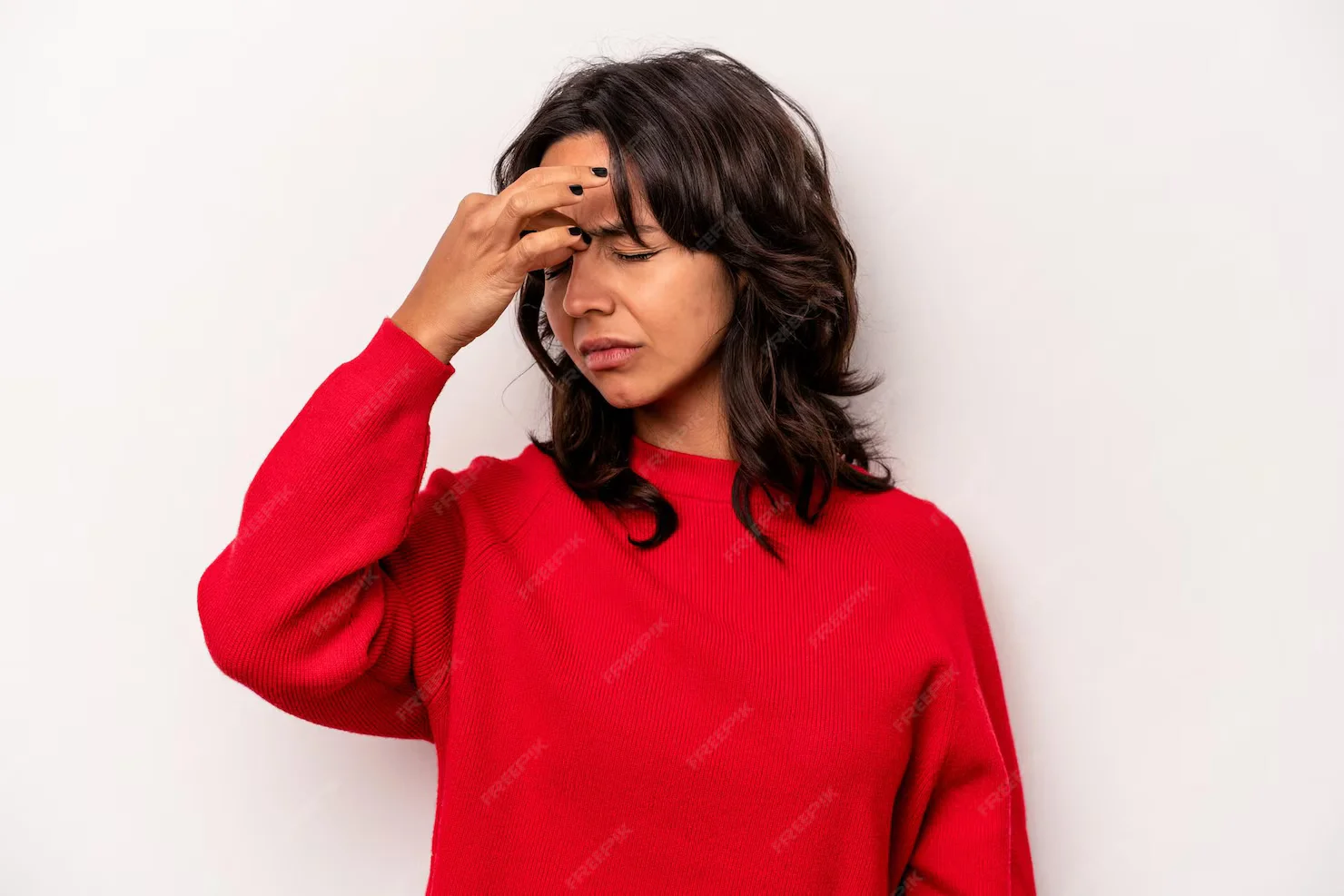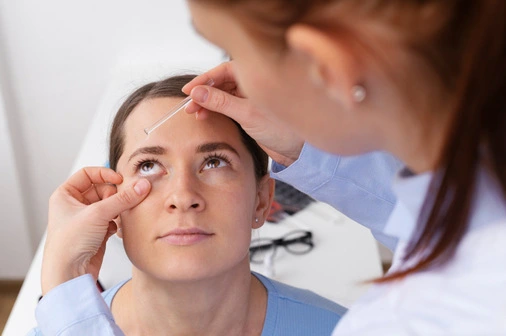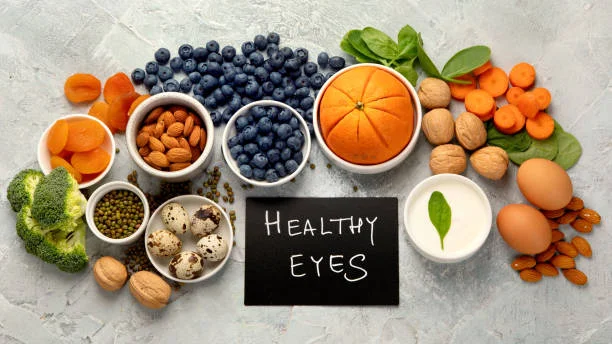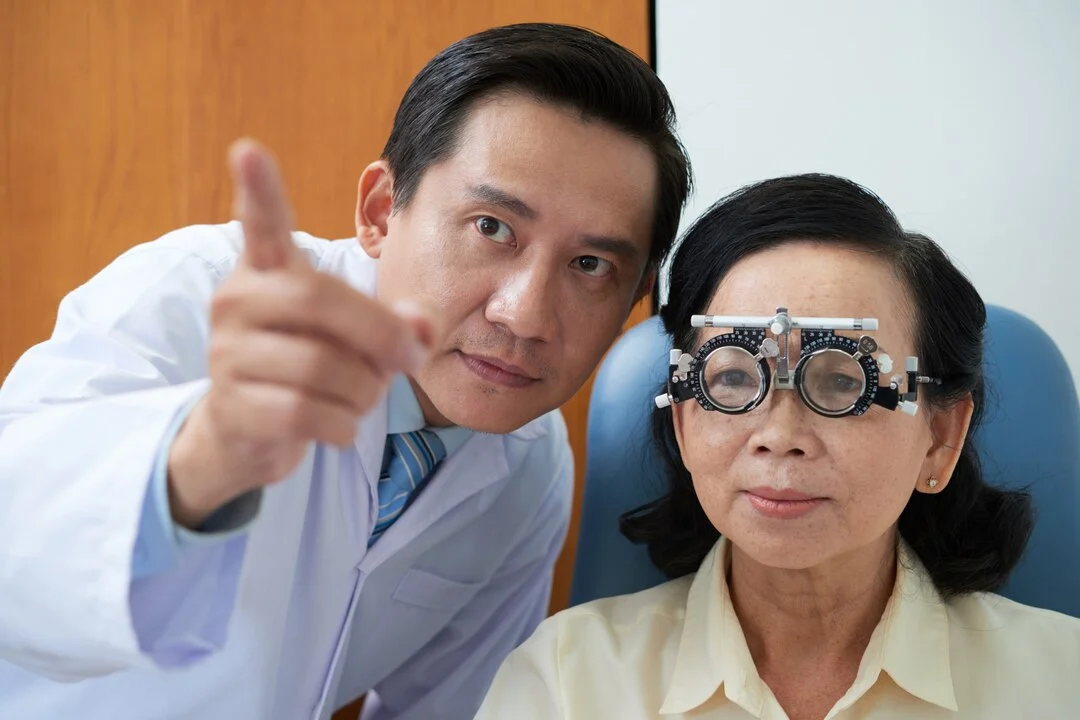Do your eyes feel itchy, irritable, and gritty? If yes, you’re suffering from a dry eye condition, a common problem which is affecting millions of people every day, while all of it seems like a minor problem to most people, it is not so, chronic dryness can affect your life to a large extent like causing gradual discomfort, itchiness, which will distract you through the day, and blurred vision, all of this can also lead to long term damage if not treated properly.
Hence, this becomes a huge concern for people who want to maintain eye health for longer duration of life.
Understanding what is dry eyes and how it affects your daily life is essential. The following blog will also help you navigate “what are dry eye symptoms” and when to visit a dry eyes specialist.

What Is Eye Dryness?
To understand how to treat the problem, it helps to know what is eye dryness. This condition occurs when your eyes do not produce enough tears, or when your tears evaporate too quickly. Tears are not just water; they contain oils, mucus, and antibodies that nourish and protect your eyes.
Several factors can lead to eye dryness. Age is a major one, as tear production naturally decreases over time. Environmental factors like wind, smoke, and dry air can irritate your eyes and cause tears to evaporate faster. Prolonged screen time reduces how often you blink, worsening dryness. Certain medications and medical conditions can also impact your tear glands.
If your eyes consistently feel dry, irritated, or tired, it is time to book a visit with a doctor for dry eyes who can evaluate your tear quality and recommend targeted treatment.
What Are the Symptoms of Dry Eye?
Many individuals confuse dryness of the eye for a temporary irritation; however chronic symptoms often indicate a more serious issue. Common symptoms include experiencing a gritty or burning sensation, redness, experiencing light sensitivity, or watery eyes (ironically from excessive dryness). You might also notice vision becomes blurry after reading or using a computer for extended periods of time. All these examples would be classified symptoms of dry eye and tend to worsen in dry or windy environments. If these symptoms are affecting comfort or normal activity, it is a good idea to see a dry eyes specialist, who can diagnose and create a treatment plan for dry eye.
When to see a Doctor for Dry Eyes?
When your symptoms persist despite over-the-counter drops, it might be time to see a doctor for your dry eyes. Chronic dryness of the eye could be a symptom of dry eye disease, a disease that can result in inflammation and damage to the cornea and can lead to vision loss if untreated.
A dry eye specialist would look at the cause of your dry eyes, whether your eye is not producing enough tears, evaporated too quickly, or a blocked gland. If your eye dry issue is addressed early, discomfort does not develop into a greater problem.

Dry eye tests you can expect
During your appointment, your dry eyes specialist may conduct different dry eye assessments to evaluate both the volume of tears produced and the quality of those tears. Schirmer's test is where small strips of paper will be placed under your eyes to collect tear volume over a five-minute period. The tear breakup time test will evaluate how quickly your tears evaporate. Occasionally, your doctor may use special dyes to indicate dry areas of your eyes or damage to the surface.
These tests will show whether your eye dryness is due to tear quantity, tear quality, or tear gland dysfunction. This process drives the effectiveness of your treatment optimization.

What to Do For dry eye
There are different mild eye dryness remedies that can be done at home. Taking regular breaks from screens and the 20-20-20 rule can go a long way. Every 20 minutes, look away from your device and into an object that is twenty feet away for twenty seconds. This can make a difference in the strain on your eyes and dryness. Any artificial tear can give relief, especially if your dryness has stemmed from air conditioning or digital eyestrain.
Staying hydrated, a healthy diet with omega-3, and protecting your eyes outdoors can help keep eyes hydrated. If you still experience dryness subsequently to these interventions, your doctor for dry eyes may consider prescription drops, use of punctal plugs to keep tears in your eye or sometimes advanced in-office treatments to restore healthy tear function.

Conclusion
Dry eyes are common, but that does not mean you should live with them. Understanding what is eye dryness, identifying what is dry eye symptom, and knowing what to do for eye dryness can help you take control of your eye health.
At Elite Eye Care, our dedicated dry eyes specialists offer precise dry eye tests and tailored treatments to restore comfort and clarity. If your eyes feel dry all the time, book an appointment today and let our doctor for dry eyes help you see clearly again, comfortably.
FAQs
1. When should I see a dry eyes specialist?
You should see a dry eyes specialist if you experience persistent irritation, redness, or blurred vision that does not improve with over-the-counter drops. Chronic eye dryness can be a sign of dry eye disease, which needs professional evaluation and treatment to prevent long-term damage.
2. What is eye dryness and what causes it?
Eye dryness occurs when your eyes do not produce enough tears or when your tears evaporate too quickly. Common causes include aging, excessive screen time, dry environments, contact lens use, or certain medications. A doctor for dry eyes can determine the exact cause and recommend proper treatment.
3. What is dry eye symptom and how do I know if I have it?
Common dry eye symptoms include a gritty feeling, burning, watering, or light sensitivity. Some people also notice blurry vision after reading or working on a computer. If these symptoms persist, it’s best to schedule a dry eye test with a dry eyes specialist for an accurate diagnosis.
4. What can I do for eye dryness at home?
To manage mild eye dryness, follow the 20-20-20 rule during screen use, stay hydrated, and use artificial tears regularly. Avoid direct air conditioning or heating vents, and wear sunglasses outdoors to protect your eyes. For lasting relief, visit a doctor for dry eyes to explore personalized treatments.

